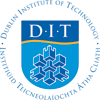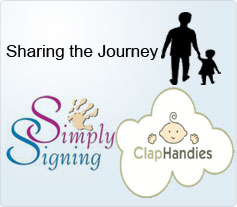Notices

 Department of Children and Youth Affairs and HSE Updates
Department of Children and Youth Affairs and HSE Updates
- Minister Frances Fitzgerald announces preparation of Ireland’s first National Early Years Strategy
- Changes to early years schemes from September 2012 onwards - 5/12/11
- Q&As relating to Childcare and Pre-school funding
- Document on Regulation 5, compiled by FNT
- Children First - National Guidance for the Protection and Welfare of Children
- Children First - Guidelines (pdf)
- ECCE Programme Guide to the Programme and the Administrative Procedures
- ECCE & CCS Schemes - Annual Returns 2010/2011
- HSE Inspections - Guidance Note - Regulation 5: Health, Welfare & Development of the Child (pdf). This will come into effect from 1 September 2011.
- Standardisation of the School Year in respect of Primary & Post-Primary Schools for the years 2011/12, 2012/13 and /14. Dates available here.
- Parents Who Listen, Protect (pdf) - Information campaign by the HSE. The booklet is also available in the following languages: French, Chinese, Latvian, Lithuanian, Polish, Romanian and Russian. Click here to download.



 A Study on Early Language Acquisition in Irish
A Study on Early Language Acquisition in Irish
UCC and UCD are currently undertaking a study on early language acquisition in Irish. The aim is to help speech and language therapists know when a child speaking Irish is slow or late in learning to talk and to understand the best way of helping them learn to speak the language of their community.
If you have young children and are interested in taking part in the research, there is an information sheet available for download here with further information and contact details.



 Samhail Nua Mhaoinithe - New Funding Model by Foras na Gaeilge
Samhail Nua Mhaoinithe - New Funding Model by Foras na Gaeilge
Public meetings
The first meeting will take place from 2.00-4.00p.m., Saturday, 25 February in Carton House, Maynooth
The remaining meetings will take place on the following dates:
- 5 March, Tralee
- 8 March, in the Cultúrlann, Belfast
- 12 March, Menlo Park Hotel, Galway
- 14 March, Halla Fhoras na Gaeilge, Dublin 2
Background on the work undertaken by CATT from 2009-2012 (as Gaeilge)
Statement from recent past Presidents of Comhdháil Náisiúnta na Gaeilge (29/1/12)
Helen Ó Murchú on Nuacht TG4 (interview begins at 1.50 minutes)
Meeting of NSMC (North South Ministerial Council) 12 October 2011
Additional advisory period recommended by Ministers (as Gaeilge)
Information on the schemes (20/9/11)
The most up-to-date information from Foras na Gaeilge on the schemes are available here for download (as Gaeilge). Further information available from www.forasnagaeilge.ie.
Submission by Forbairt Naíonraí Teoranta under the New Funding Model by Foras na Gaeilge
This is the submission made by FNT, at the end of June 2011, to Foras na Gaeilge under the new funding scheme.
Since the submission, the North South Ministerial Council (NSMC) agreed that interim funding may continue to be provided by Foras na Gaeilge to the 19 existing funded organisations until end of June 2012. The full Joint Communiqué may be downloaded below.
FNT Submission - September 2010 (as Gaeilge)
FNT Submission - June 2011 (as Gaeilge)
NSMC Joint Communiqué



 Swine flu
Swine flu
Prevent the spread of flu
The majority of people get mild to medium strength flu symptoms and get better after about a week at home. Fluids, paracetemol and rest enable the recovery of the majority of people, however those with heightened symptoms or underlying health conditions should visit a doctor.
It is extremely important that people are mindful of the basic steps that should be taken to keep the spread of flu to a minimum:
| Catch it! | Use a tissue if you cough or sneeze |
| Bin it! | Always dispense of the used tissue in a bin |
| Kill it! | Always wash your hands afterwards with warm water and soap |
Publications
There is an Irish language poster available from the HSE for download here.
HSE information video available (English language - no Irish language version available) here.
Do you have a cold or flu?
Firstly, it is necessary to check your symptoms. The flu comes on suddenly, within a few hours of feeling fine, you can get it. Below are the symtoms of flu:
- A sudden fever of 38C or 100.4 F
- Extreme tiredness
- Coughing
- Sore throat
- Muscle pain
- Runny nose
- Headache
- Some people also experience vomitting or diarrhea
Sometimes it can be difficult to distinguish the difference between cold and flu.
Usually a cold appears gradually and is mainly linked to a runny nose and sneezing.
Flu symptoms appear much quicker and usually include fever and muscle pain. Sometimes people will also experience vomitting or diarrhea with the flu.
Flu Vaccine
Frequently asked questions and answers to these questions are available on the HSE website (in English) here.
Pregnant women and people with underlying health conditions in particular, are advised to get the flu vaccine before they notice any flu symptoms.
Further information
Further information is available from the HSE website (in English - no Irish version available).
Complaints
If you wish to make a complaint regarding the lack of information available through Irish from the HSE, you can email .



 Computing through Irish
Computing through Irish
The site www.nascanna.com is the brainchild of Dúrud Teoranta. It is a collection of Irish language computing resources.
Whether you are looking for help putting documents together, for the opportunity to chat with friends, or gaming online - there is a link for it. Visit the site www.nascanna.com for further information.



 DT507: BA (Onóracha) sa Ghaeilge don Saol Proifisiúnta
DT507: BA (Onóracha) sa Ghaeilge don Saol Proifisiúnta

Recent government-led initiatives have led to a significant increase in opportunities for Irish language graduates in the areas of employment and/or further education. These developments include the enactment of the Official Languages Act, 2003, the inclusion of Irish as an official language of the EU in 2007, and the recently published policy document Straitéis 20 Bliain don Ghaeilge 2010-2030 (20 Year Strategy for the Irish Language). BA (Onóracha) sa Ghaeilge don Saol Proifisiúnta is a new and highly-innovative 4-year honours degree programme which will prepare graduates to function professionally through the medium of Irish in a wide variety of chosen career paths.
As well as being highly skilled in the Irish language itself, graduates will also acquire a comprehensive range of experience and knowledge through the medium of Irish in a broad spectrum of subject areas, including media, business, community-work, the creative arts and language facilitation. Subject areas studied on the degree include: Language Skills, Translation Studies, Literature, Media Studies, IT skills, Business and Administration, Public Relations, Marketing, Community Work, Traditional Singing, Music, Folklore, Radio and Television Skills, Management, Accountancy, Creative Writing, Scriptwriting, Irish-Language Film, Language Facilitation in the Community, Research Skills, Financial Management, Event Management and the Creative Arts.
The academic diversity offered on this programme will enable students to pursue employment and/or further study in areas such as administration, translation, sociolinguistics, proof-reading, document preparation, teaching, mass-media, business, cultural tourism, heritage and folklore, creative arts, community-based employment, language facilitation, language-planning, and other related areas.
An information sheet in English is available for download here. Futher information, aswell as registration forms, are available on the following page www.dit.ie/schooloflanguages/, or from
DIT, School of Languages - (01) 402 4673/(01) 402 2843
Oifig na Gaeilge, Institiúid Teicneolaíochta Bhaile Átha Cliath - (01) 402 7043



 Sharing the Journey
Sharing the Journey

Sharing the Journey is a newly established parent led organisation, offering unconditional parent-to-parent support to ALL parents of D/deaf and hard-of-hearing children.
Following the very successful 'Parent and Toddler Play Date' and numerous requests to host more, they are delighted to announce that they will be hosting monthly 'Play Dates' in April, May and June in Dublin.
Please click here to see the flyer, further information is available from Theresa on 087 916 3168/ 085 722 5659 or from [email protected].



 Talking First Aid
Talking First Aid

"I'm of the opinion that "Safety Mate" is very important in the Naíonra. The information is bilingual. It is very easy to use, and it covers everything from bleeding to heart-attacks. I'm very happy with it." - Bernadette, Naíonra Phádraig, Co. Dublin
The company SafetyMate has developed a First Aid device that talks to you! SafetyMate's bilingual devices are in use in houses, offices, sports clubs and many other places around the country.
This is a very useful and valuable instrument and FNT recommnends the SafetyMate device to every Naíonra. They are available for €160 (+ delivery). Further information about the product is available here.


 Links
Links Locations
Locations Support
Support About us
About us